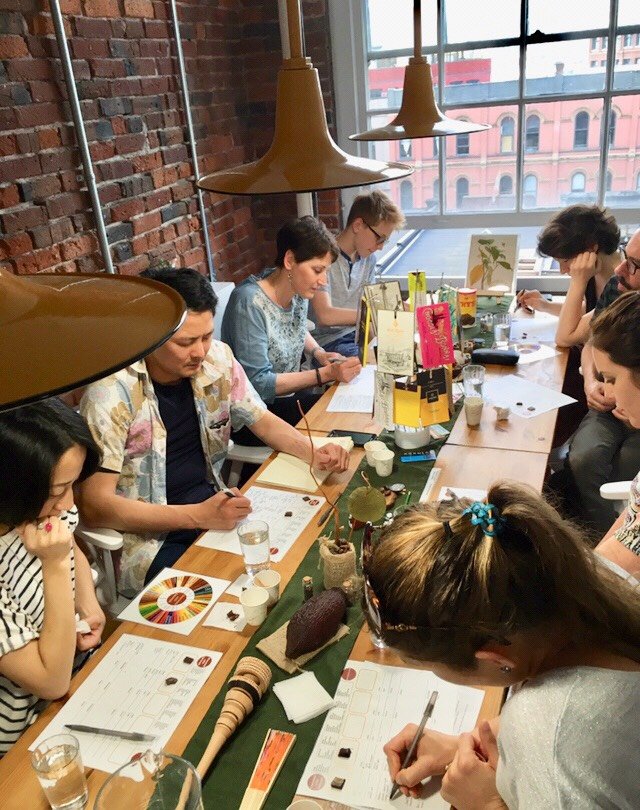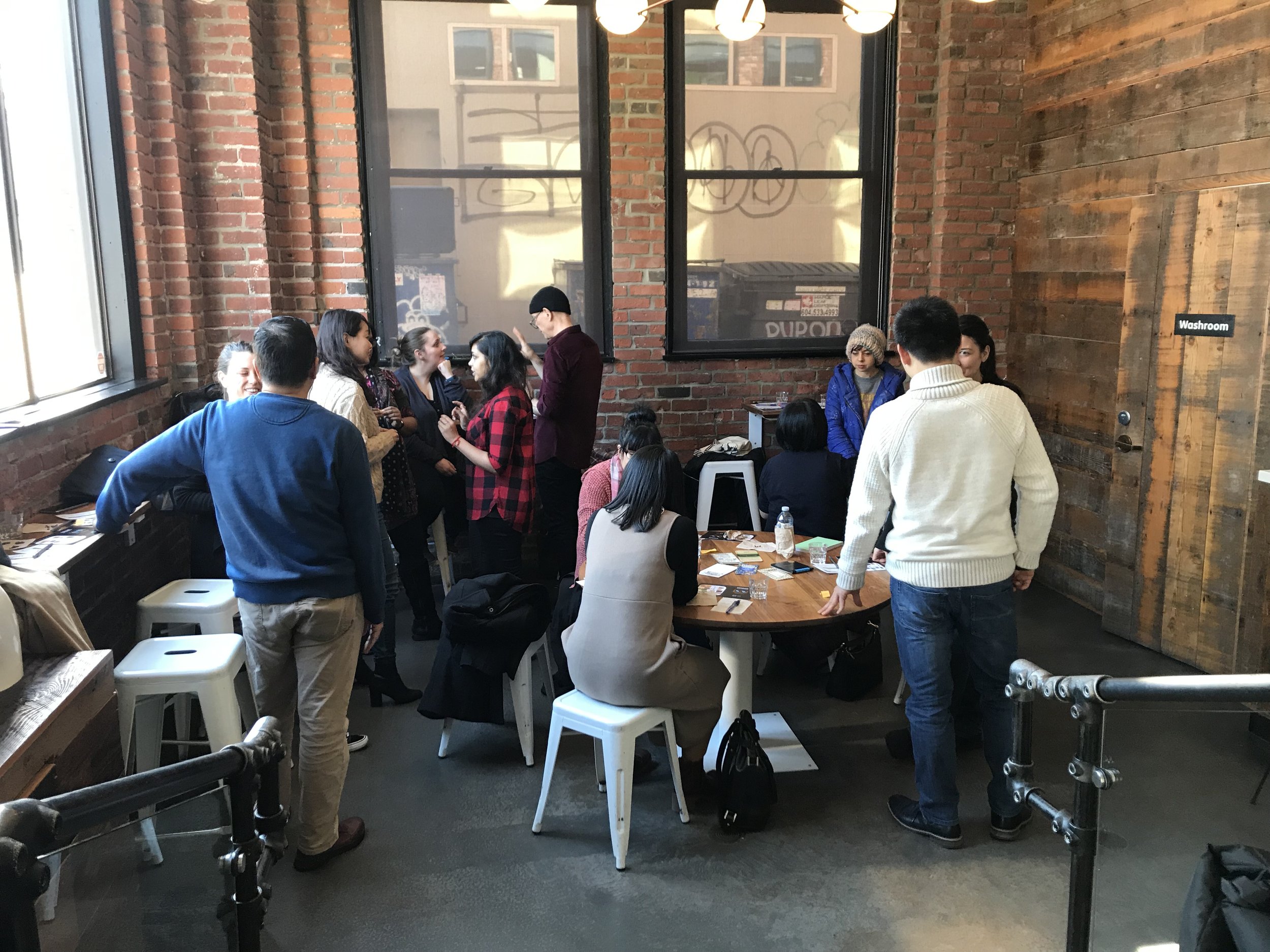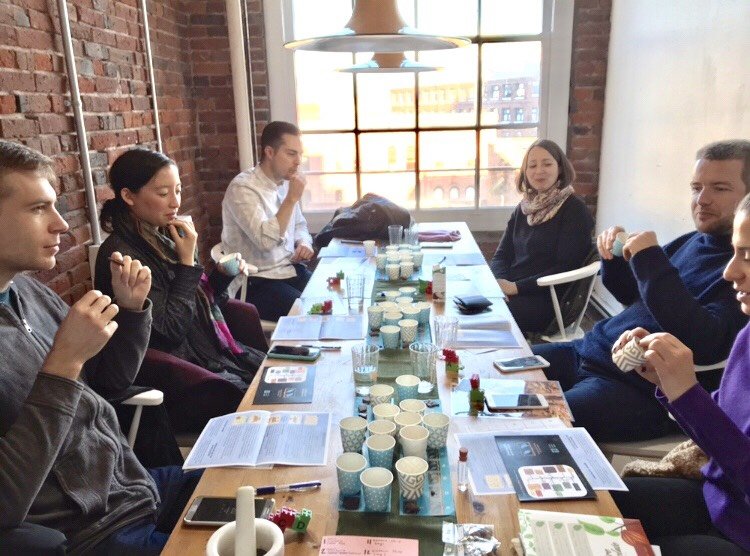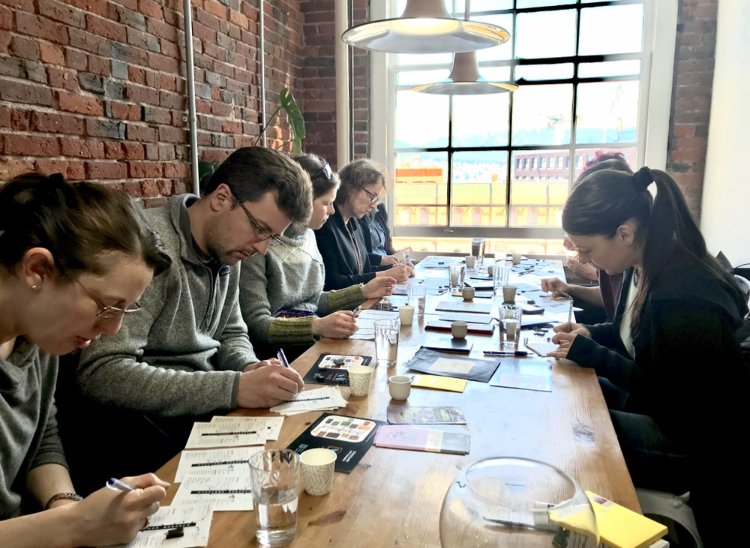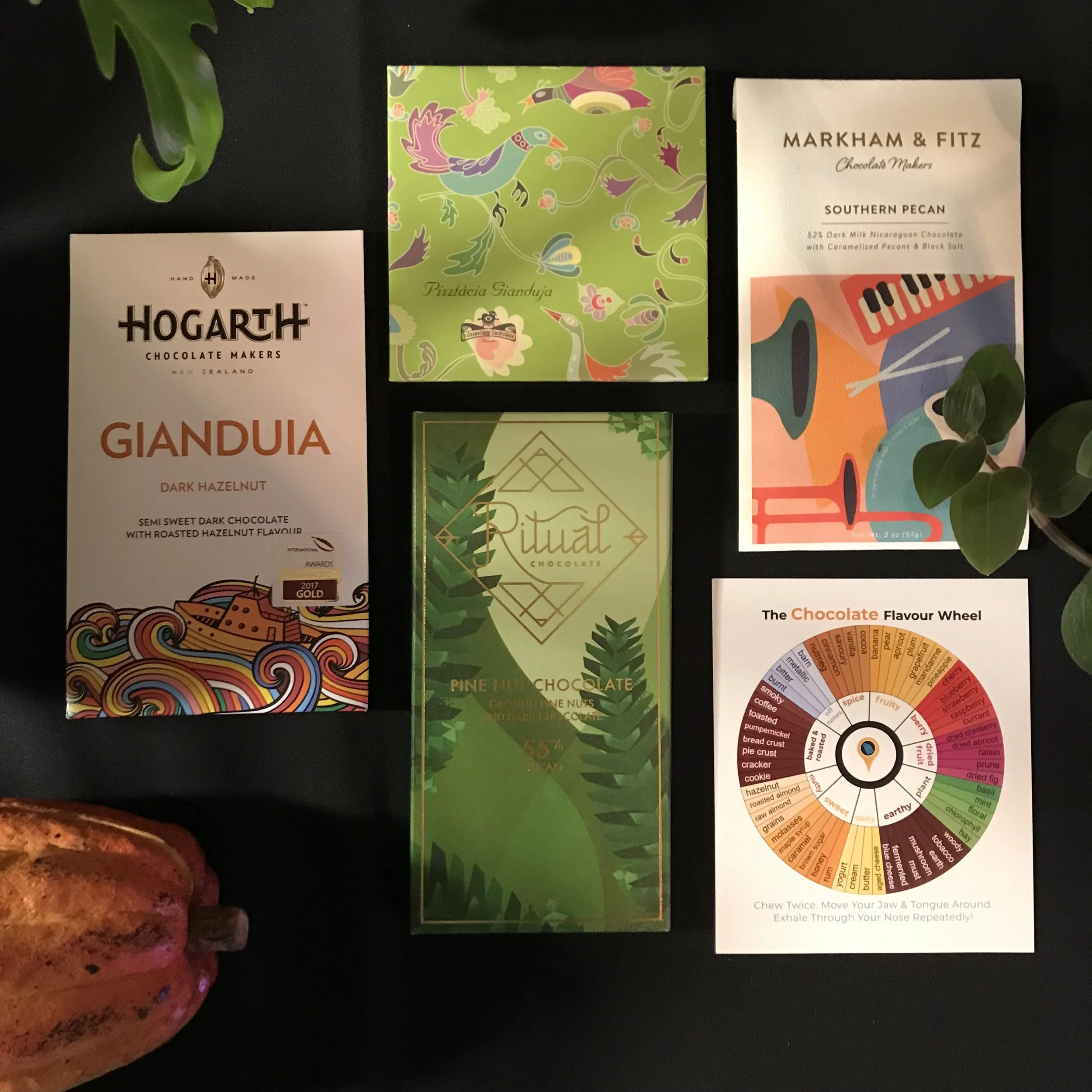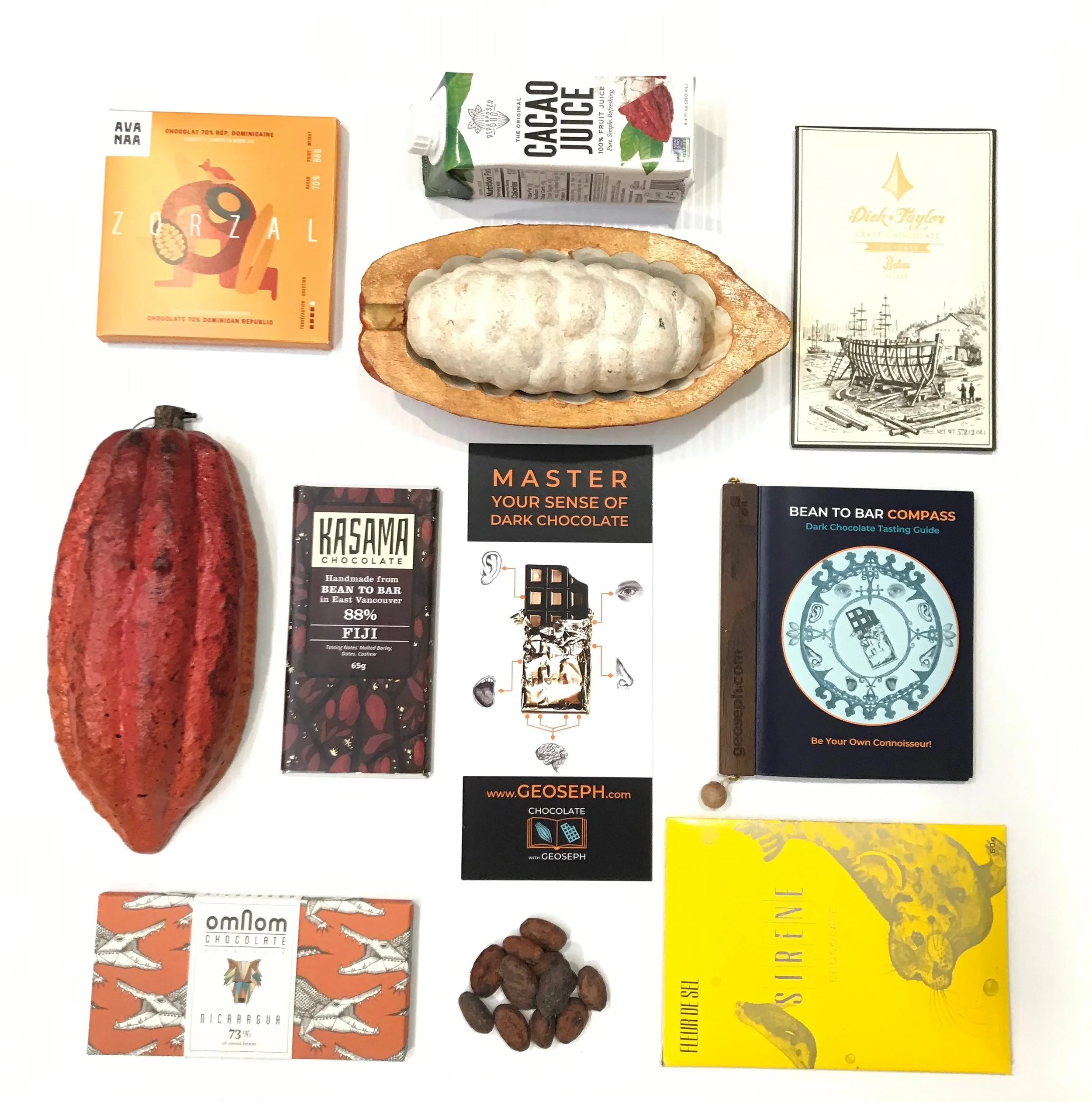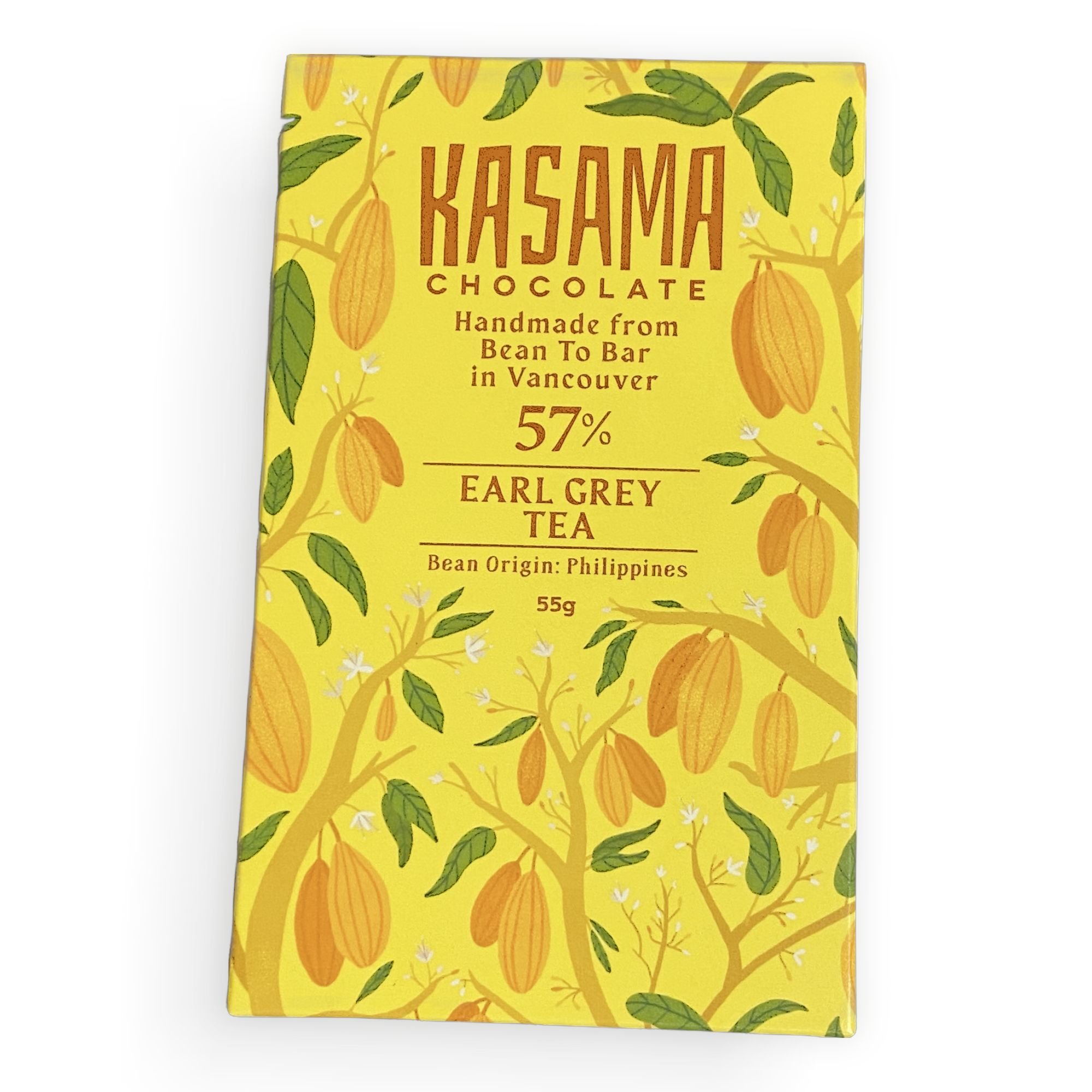Chocolate Tasting Beginner Tips
When it comes down to it, what a beginner taster needs is patience and persistence. Many think that because they can't articulate the flavour profile of a bar confidently, that they are somehow “not good at it”. This is truly not the case.
It is true that just like any skill, some people will become better than others. However, everyone can improve on their tasting capabilities. Think of singing. Most people cannot sing very well, but had they been given some vocal lessons they would be surprised how well they could reach notes, control their breathing, and sing much more beautifully than they ever thought. The same true with tasting and articulating fine chocolate. All you require is patience, the right tools and some guidance. Never give up! And feel free to reach out to me if you have questions, or book a tasting Q&A live Zoom session to go over your issues in real-time.
Welcome!
Helpful Posts
Below are some blog posts that beginners may find very useful
Beginner Friendly Dark Chocolate
Dark chocolate which is less challenging to articulate
Single Origin Milk Chocolate
+ Beginner Friendly Dark Chocolate
Many people who say they do not like dark chocolate don't realize it may be because they never had good dark chocolate. It's like only ever eating perfect looking yet flavourless tomatoes or strawberries you get from the grocery store. You think this is how they taste, and you develop a dislike for them, without realizing that’s not really what a good quality tomato or strawberry tastes like. The same goes for quality dark chocolate.
This has led to most people assuming all dark chocolate should taste like the dark chocolate they grew up with. That is, bitter, and having that typical cocoa flavour. However, this can’t be further from the truth. True bitterness (not intensity) is often a sign of poor quality chocolate, and fine cacao tastes so much more than just "cocoa".
Above is a selection of some dark chocolate bars that tend to be quite enjoyable to beginner fine chocolate eaters. These bars tend to be not bitter at all for most people, and contain a range of surprising flavours. The flavours can also be somewhat easier to pick out, or at least taste very different than the typical dark chocolate you have experienced.
Some of the flavour notes in these bars tend to be more fruity, floral, spice, or nutty. Keep in mind these are just plain dark chocolate bars with 2 or 3 ingredients (cacao beans, sugar, cocoa butter). The flavours come from the cacao bean itself and how it was cured and processed into a beautiful chocolate bar. They are all 100% plant-based. No flavourings were added. That's a big part of what makes fine chocolate so special.
If you’re new to fine chocolate, or not a fan of dark chocolate but want to try high quality dark chocolate, these bars may be worth a try. Of course, subjective preference comes into play, so I can’t guarantee you will enjoy all of them, but you will likely enjoy some. I can't tell you how many people have come to my tastings hating dark chocolate, and leaving with a new appreciation and newfound love for it!
If you want to learn more about the bars, or see the suggested flavour notes, click on the bar and read the back of the bars. If you have any questions, please let me know! I would love to help you.
+ If you really dislike dark chocolate, try starting with single origin milk chocolate
Some of you may just be very opposed to dark chocolate, and not even willing to try the beginner bars I suggested above. That's okay! You likely have a sweet tooth. A proclivity for sweet foods. You can certainly still enjoy fine chocolate.
I would suggest trying fine single origin milk chocolates. These are bars that normally contain only cocoa bean, sugar, milk powder, and cocoa butter. It's like having a latte instead of a black coffee or espresso. A high quality milk chocolate will have more depth of flavour than commercial milk chocolate. You may find notes of caramel, nuts, cookie, fudge. All these flavours come from the bean itself and how it marries together with the milk powder.
Click on the bars above under "Single Origin Dairy Milk" to read more about them. Try at least 2 or 3 side by side to see how different they can taste. The quality of the cocoa bean used can really have a huge impact on the depth of flavour in these fine milk chocolates.
+ Make sure you are hungry.
Many people associate chocolate with dessert, and tend to eat it after a meal. The problem here is that our bodies don’t process flavour to the same degree when we are full. When we have eaten a meal, our body sends signals to our brain that make us less willing to eat. Part of what gets shut down is our sensitivity to flavour. Therefore, if you just ate a big meal, or are not hungry at all, it’s going to be more challenging to pick out the flavours of fine chocolate especially as a beginner.
That is why I recommend enjoying your dark chocolate as a snack, many hours after eating. Or take a few moments to enjoy it before a meal, as opposed to after it. You will enjoy the flavour of the chocolate at a greater intensity.
+ Compare and contrast.
We often think our memory is better than it really is. We have memories of foods, flavours, and smells, but how accurate are they? Think of it like learning to play an instrument for the first time. If your teacher plays an “A” or a “C” on the piano, and asks you to tell her which is an A and which is a C, you will have no clue which is which if you never learned this before. You will need to train your ear to know what an A or a C should sound like. This is not too different from flavour. This is why it’s important to compare and contrast your fine chocolates, especially as a beginner. There are a couple ways to do this.
Try two or three different fine dark chocolate bars
Have at least 2 or 3 bars, and try them side by side. Try bar A, analyze it, then try B. Then go back to A again, and back to B again. Then try A with C, and so on. Your brain will begin to recognize the differences, and the difference will become more apparent for you. Then it will make it a bit easier to articulate what flavour or category of flavours you’re picking up in the chocolate.
Compare it to a commercial chocolate
Some people say, “I don’t know, it just tastes like chocolate to me” when trying a fine chocolate for the first time. This may be true to some extent, but I guarantee if they tried it side by side with some commercial chocolate, the differences will become more apparent. The deepness in flavour, the variety in flavour notes in the fine chocolate will all of a sudden become more apparent. From then on, you will really notice the difference in commercial chocolate without even having anything else to compare it to. It’s about training your mind to “taste” what’s there, just like a musician trains their mind to hear notes, or an artist trains their mind to see things that they paint.
+ Is anything impacting your sense of smell?
Keep in mind the following. These things can impact not only how we interpret the flavour of our chocolate, but may even impede what flavour we can take from it.
Previous foods you ate - if you ate strong tasting foods earlier (garlic, coffee, onions, lots of strong spices) then these will still be lingering in your mouth and interfere with the flavour of the chocolate. What you’re tasting is not just the chocolate, but the combination of those flavours with the chocolate. Stuffy nose or being sick - If you have a stuffy nose from a cold or allergies, this will also impede your sense of taste. If you are getting over an illness where you temporarily lost your sense of taste, this will also limit what flavour you get from your chocolate. A key here is to focus on exhaling strongly from your nose when consuming the chocolate. You or the chocolate is too cold - Chilling your foods will mute the flavours. Eating cold chocolate will impede the way it melts and also slightly mute the flavours. If this is the case, really focus on rubbing the chocolate around with your tongue to warm it up. Also, if you feel cold (fingers are cold, nose is cold) then that will also mute the flavours of your chocolate. Try to warm up, or sip some hot water while you enjoy your chocolate. You will notice a difference. Ambient smells - if you are surrounded by very strong perfumes or are in a kitchen while foods are cooking, these ambient odours will definitely impact the flavour of your chocolate. If you can’t help it, keep it in mind, and focus on exhaling. Otherwise, try and find a place without such strong odours. Smoking/Smoke/Pollution - smoking damages the olfactory nerves, and makes it more challenging for our body to pick up all the aromas in our foods. I have lived in areas where there are many forest fires, and when the air smells like a campfire for days on end, it actually does impede your ability to taste the chocolate properly. Living in a city with high levels of pollution can also damage your olfactory nerves in the way smoking does. Something to keep in mind. The good news is, these olfactory nerves can usually grow back eventually once the situation has changed.
+ Focus on mouth movements and breathing
If you purchase the Bean To Bar Compass, or have been to one of my tastings, you will know how important mouth movement and breathing is. There is a great deal of misinformation in regards to tasting chocolate. Most people suggest you just leave the chocolate on your tongue to melt, not to chew, and never mention breathing. Mouth movement and breathing are extremely important in extracting aroma and sending this flavour information to your brain. Don’t ever let the chocolate just sit on your tongue, move it around. And don’t feel bad if you like to chew it, just don’t swallow it right away.
+ Seek out some guidance.
When I first tried to crochet, I tried to teach myself. I bought what was a very clear instructional book with lots of pictures. I could not figure it out. One day I got together with someone who knew how to crochet, and after only an hour or so, I got it!
We all learn in different ways, and some of us, for some things, just need to be shown. We need that 1-on-1 to really "get it".
Taste with others. Check out the “tasting guide” in the menu there. Also check out tasting tools like the Bean To Bar Compass, which really guides you to become a more confident taster. You can even book a one-on-one virtual tasting session with me and let me walk you through the basics! I have had many people book a virtual chocolate testing for themselves so I could help guide them with lots of room for questions and answers.
+ Don’t overthink it.
One thing I say often to beginners is don’t overthink it. They think they will taste very specific flavours right away, and if they don’t, they feel discouraged. Would a beginner musician know exactly what is what on the first day? Certainly not. Not even the first week. So why would that be different from tasting fine foods?
Keep in mind there is taste (the 5 basic tastes picked up in our mouth). These are hard wired. You are born to know sweet is sweet and salty is salty. Aromas are the more unique aspects that give foods their distinct flavour, such as strawberry, rose, toasty, nutty. This is why when you are stuffed up and can’t pick up aromas, you can still taste the saltiness or sweetness of the food, but nothing more. Flavour combines what we taste, what we smell, with our other senses, and is processed in the brain that deals with memory and emotion.
You may think, “well I eat and taste all my life”. True, but you were never given the tools and the know-how to taste at a deeper level. We often eat without thinking or analyzing the flavour. We don’t try to explain what the orange tastes like beyond “it’s sweet or not so sweet”, we just accept it tastes like an orange. I can give you a saxophone, and you can blow air through it for years, and play around with all the buttons. But if you never really bothered to learn it properly, how could you expect to play a beautiful coherent musical piece? So don’t be so hard on yourself!
Begin thinking in more general terms. If nothing specific comes to mind, think of a more general flavour category such as “earthy” or “fruity”. If you can’t think of a food or aroma, think of what it reminds you of. This can be food or non food related. Flavour is tied heavily to the part of our brain that deals with emotion and long term memory. What we are doing is training our brains to think deeper about flavour, so whatever comes to mind is a good start! You’re training your brain just as you would train it to hear music or to draw.
+ Don’t give up. Practice.
Any sommelier, be it chocolate, wine, or tea, not only studies and reads for years before they can call themselves an expert, but also mindfully drinks or eats their food week after week month after month and year after year. It takes time to build up the pathways in our brain to help us more quickly articulate the flavours. It takes years to know the difference between what the chocolate actually tastes like and what may be just the flavour of the moment due to surrounding or interfering inputs.
Some people will be better than others, just as some singers are better than others. However, it doesn’t mean you can’t train yourself a great deal to taste fine chocolate much better and begin to appreciate it at a deeper level. Don’t compare yourself to others, but track your progress and look back at what you knew and what you have achieved. Stick to it, explore, and enjoy. If you are wanting to get better, you will if you stick to it.


